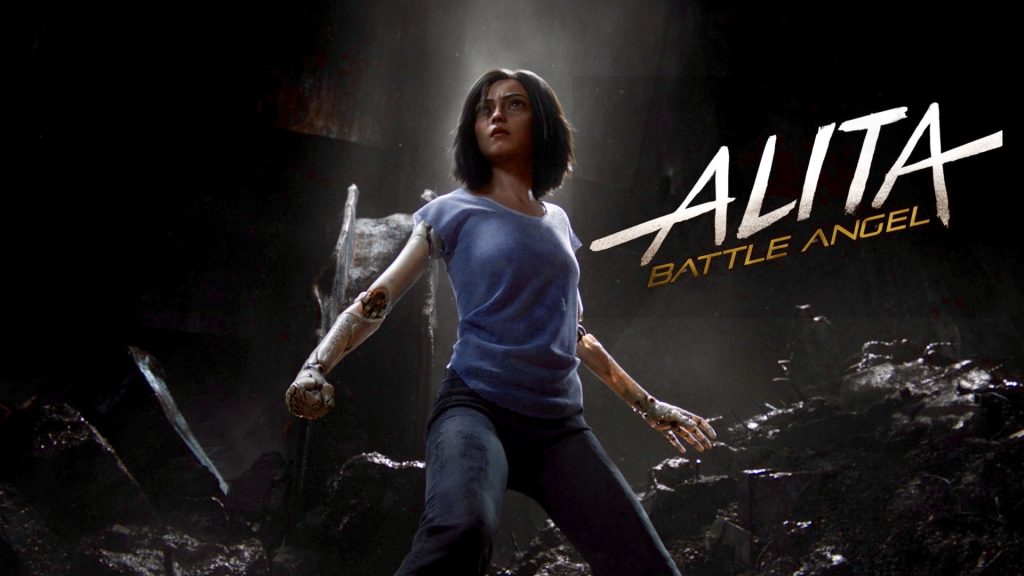Susan Granger’s review of “Alita: Battle Angel” (20th Century-Fox/Lightstorm Entertainment)
In 2003, when James Cameron first announced his intention to adapt Yukito Kishiro’s cyberpunk manga, the popularity of the “Matrix” trilogy had catapulted cyberpunk into mainstream popularity. But that was shifted to a backburner when Cameron decided to focus on “Avatar.”
Eventually, Robert Rodiguez (“El Mariachi,” “Spy Kids,” “Sin City”) stepped in to take over directing chores on Cameron’s sci-fi action/fantasy concept – with sumptuous visual effects, courtesy of Peter Jackson’s Weta Digital.
Set in 2563, 500 years in the dystopian future, on the dusty streets of Iron City, located under the flying city of Zalem, the story revolves around Alita (Rosa Salazar), a starkly stylized cyborg with oversized eyes, a human brain and a tiny-waisted, Barbie-shaped body.
Like Dr. Frankenstein’s legendary monster, Alita was assembled by Dr. Dyson Ido (Christoph Waltz) from discarded parts of half-human cyborgs and named after his late daughter.
Although her brain is initially innocent, Alita gradually recalls battle-scarred memories. They serve to make her a ferocious teenager with instinctive combat skills which she channels into playing “Motorball,” a skull-cracking, gladiatorial sport which combines rollerblading with basketball.
Romance surfaces in the form of Hugo (Keean Johnson), a blandly generic, human robo-junk dealer who introduces Alita to the taste of chocolate: “We don’t belong anywhere, except together.”
Villainy is supplied by Ido’s arrogant ex-wife Chiren (Jennifer Connelly) and her sinister, manipulative sports mogul/lover Vector (Mahershala Ali). And then there’s the threat of monstrous Grewishka (Jackie Earle Haley) who is hunting Alita.
To their credit, the filmmakers inject fascinating multi-cultural aspects, like Iron City’s street signs in Spanish/English and a street musician playing a double guitar with three arms.
Problem is: the ponderous script, which Cameron co-wrote with Jon Landau and Laeta Kalogridis, is exposition-heavy, uneven and devoid of humor, clunking toward an unsatisfying cliffhanger climax that’s a blatant set-up for franchise sequels.
On the Granger Movie Gauge of 1 to 10, “Alita: Battle Angel” is a frustrating 5 – saddled with chaotic action and undeniably creepy motion-capture.

